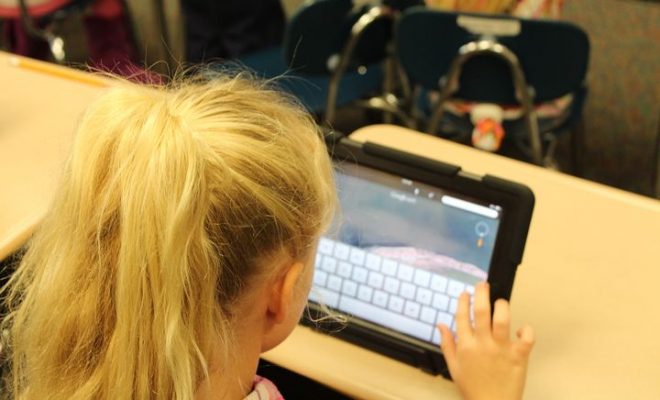Most students borrow for college, but are they financially literate?

Catherine Montalto, The Ohio State University and Anne McDaniel, The Ohio State University
August is here, and many families are preparing their children for the next academic challenge – a college education.
By and large, a college degree is viewed as an important credential for gainful employment and professional success. At the same time, college is costly, and college financing strategies are complex.
Students and their families use multiple sources to finance college expenses. Most students borrow for their education. Three out of five college students depend on student loans to fund their education.
But, do students know the ABCs of financial literacy?
College finance options
The college process begins with estimating the full cost of college attendance. This includes tuition, housing and living expenses, such as food, books, cellphone plans and transportation.
The next step is to identify all resources available to pay college expenses, including the expected family contribution, scholarships and grants, college savings and wages from employment – if students plan to work.
Once college costs and available resources are carefully estimated, any shortfall in resources informs the need for borrowing. Scholarships and grants are awarded without strings attached. However, student loans come with an obligation to repay the borrowed amount once the recipient is no longer enrolled full-time.
Guidelines for responsible student loan use recommend minimizing the loan amount in order to have less debt to be repaid.
Decisions made by college students and their families regarding loans have direct and significant consequences during adulthood.
The inability to manage student loan repayment along with other financial obligations (i.e., housing, food, utilities, transportation) has been shown to impact career choice, home ownership, marriage, additional education, financial health and overall quality of life.
So, how do students decide the amount to borrow? What rules of thumb or strategies are used? How is use of these strategies related to financial knowledge?
How students make borrowing decisions
We lead the Study on Collegiate Financial Wellness (SCFW), which surveys a random sample of undergraduate students in order to understand their financial behaviors, decisions and wellness. Data from our study provide insights to these questions.
The 2014 SCFW study, with the most recent information from nearly 19,000 college students studying at 51 public and private four-year and two-year institutions, found that the majority of college students with student loans use one or more strategies to minimize the amount borrowed.

How are students making borrowing decisions? Application image via www.shutterstock.com
For example, data from our study showed over half of student loan users tried to borrow as little as possible (52 percent).
Additionally, 38 percent considered the total amount of debt that they expected to graduate with. Thirty-three percent considered the amount that had borrowed in the past when deciding how much to borrow for the school year.
But about 28 percent, almost three out of 10 students, reported borrowing the maximum amount available in their package. And about 17 percent of student loan users borrowed the maximum available without also employing a strategy to minimize overall borrowing.
Low financial knowledge
The next question is, how well are students prepared to make these important decisions?
The SCFW included two financial knowledge questions to test whether respondents could understand the concepts of interest and inflation and had basic financial numeracy. These questions assess basic concepts of financial literacy – the knowledge and skill needed to manage financial resources effectively.
Nearly 80 percent of the college student respondents answered the interest rate question correctly. But only 59 percent answered the inflation question correctly. Just over half of the college students (53 percent) answered both questions correctly.
Students who answered the interest rate question incorrectly don’t understand that interest is earned not only on money deposited in a savings account, but also on previously earned interest – a feature known as compounding – while students who answered the inflation question incorrectly don’t understand that rising inflation reduces the buying power of money. Interest and inflation both influence how much our hard-earned money can buy.
These results are similar to previous research conducted in 2007-08 with 23-28 years old young adults.
In that study, the percentage of young adults answering correctly was 79 percent for the interest rate question, 54 percent for the inflation question, and 46 percent for both questions.
Knowledge influences borrowing
Some colleges provide either workshops or longer term courses on financial education, but the percentage of college students who receive financial education remains low.

When students know more, they save more. 401(K) 2012, CC BY-SA
Only one-quarter of the SCFW respondents completed a financial education course in college. Those that did were significantly more likely to answer both financial knowledge questions correctly (58 percent vs 51 percent). This difference is too large to attribute to chance alone, and suggests that financial education increases financial knowledge.
Using data from the SCFW on 7,180 students at four-year colleges, we wanted to see if financial knowledge and financial education were associated with strategies used to make borrowing decisions.
We controlled for many factors known to affect student loan borrowing, including student age, sex, race/ethnicity and socioeconomic status. We found that with higher financial knowledge, students were more likely to borrow what they believed they needed.
We found they budgeted and borrowed as little as possible, when they had financial knowledge.
Knowledge is power
While a college degree certainly pays off in the long run, the payoff can take longer if students have loans to repay.
This fall as students enter or return to college, it is important that they make thoughtful decisions about financing their education. Families making decisions about paying for college may also want to have discussions about how much students understand about finances or look for opportunities to take financial education workshops.
As the saying goes, knowledge is power, even when it comes to finances.
![]()
Catherine Montalto, Associate Professor of Consumer Sciences, The Ohio State University and Anne McDaniel, Senior Associate Director, The Ohio State University
This article was originally published on The Conversation. Read the original article.




